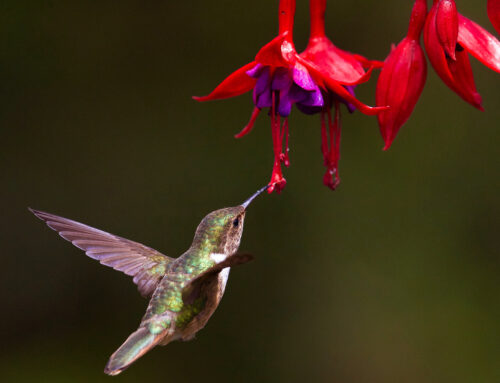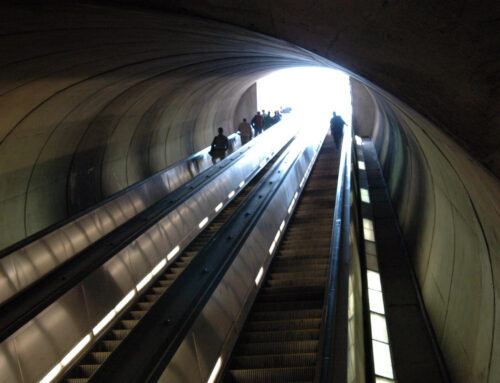Photo by Zhang Kaiyu on Unsplash
I have an accent when I speak. I am a Japanese immigrant who came to the States in 1990 to join a post-doctoral fellowship program at the National Institutes of Health. I hadn’t had any formal English education in this country.
In Japan, I took English as a second language for eight years, three years each at junior high and high schools and an extra two years at dental school. Despite all this English education in Japan, my learnings didn’t seem to work at all in “the real world,” and I can tell you why: Thirty years ago, native English-speaking instructors were rare to find in Japan. The few who were there were only found at very few private high schools and universities. Prestigious English conversation schools like Berlitz were rare and located only in the centers of Japan’s major cities.
I went to public schools from elementary to high school. Thus, I had no chance to experience “real” English conversations during those years until I took private lessons from American instructors for a couple of months before my departure to the States. This may wow you, but it’s true—back then in Japan, we didn’t have any English-speaking teachers at classes in the public schools, including for “conversation.”
After I came to the States, I took some ESL night classes for a while. Every day, I had so many things to learn from scratch. I was fascinated with learning, especially when it came through dynamic exchanges with people in my real life. As I got busier with my love for life and interests in yoga, photography, and other activities, I discontinued the ESL lessons. I focused my curiosity and learning more on forging my life in this new country than on language.
***
Since my childhood, I’ve been a seeker of truths. But while I was in Japan, this natural quest by my heart was often interrupted. In the States, I started with being a researcher. I’d had a psychological trauma caused by my father and our familial problems in my earlier years. Because of that trauma, I’d refused to become a clinical dentist. Here in the States, I tried to overcome and heal from my past, and I learned to trust myself, forging a path by following my heart. My late husband, Patrick, who had also immigrated here—in his case, from England—supported me in many ways to heal from my wounded past.
Finally, my path took me to further my dental education and become a licensed pediatric dentist in this country. In this process, I reconciled with my father, who had by that point been long estranged from our family in Japan.
Through all these experiences, I learned from lifelong challenges and turned them into opportunities. Together with Patrick, I was able to cultivate resilience and the agency to further create our paths.
After moving to California in February 1998, I underwent another set of dental licensure processes to practice in California. At first, I used my Maryland dental license for its reciprocity to practice in the federal government-funded clinic where I was working. I treated children in the indigenous Native American community fifty miles northeast of our home while I worked to complete the board exams. After receiving my California license in the fall of ’98, I continued my clinical practice in the Native American community for the next fifteen years—until I was no longer able to do so due to Patrick’s sudden illness in the summer of 2013.
***
I am curious and love to learn, not only from studying but also from anything else. Being a forever student, I’ve stayed humble in many learnings. In the mindful teachings, this is sometimes called having “a beginner’s mind.” We can learn from anything: nature, animals and plants, the weather, daily, social events and activities, books, people, or whatever we find in our daily life and the world. When our minds are in the right place, we are all students andteachers to each other, inspiring and causing something precious to resonate inside one another.
Whenever I go outside my own box for learning, a surprise—often stimulus, excitement, or happiness and sometimes shock, disbelief, or even pain—follows. Usually, the reactions inside me show what resistances I have in me. How I see and what I see in the world and people is a key learning opportunity to understand me and its environment.
My accent is one example of this. I sometimes come across someone who frowns at my accent as I speak. Perhaps you think that person is rude. Except for the scarce case, however, I know this person doesn’t even realize she’s made such a face, so I don’t take it personally at all. Instead, I think of her feelings and actions. Perhaps she hasn’t meant to offend me but is just having difficulty understanding what I’ve said. Making a face is her own reaction to the difficulty. It must be stressful for her, and I am the person who’s put her in such an awkward position.
In this reflection, I see clearly my “mixed” feelings toward my accent. If I allow myself to play with it, I can have either a negative or positive thought and reaction. If I stick to the negative side, it becomes my presumption, which may cause me sadness. But I know the only way is to keep the communication open. I would rather have empathy toward this person and positively imagine where she’s come from. I have a choice: I can either look at my own weakness and sob, or I can stay with the unchangeable facts (perhaps, still changeable!?), try to react positively within the situation, and ease her feelings with a more compassionate approach. This is how to reflect and remove my fear. This is what I have learned from my experiences.
This is just a small example. However, this mindful process in the moment of possibly conflicting situations helps us build better paths in our lives. Pausing the situation by taking a deep breath, reflecting, and choosing the right (re)action and the decision ultimately allows us to forge our paths and build a way of being that we can trust.
Trying out something new outside our own box is to experience the unknown. Reactions to the unknown differ depending on an individual and the circumstances. Whenever I face a surprise, I quickly reflect, Why am I feeling like this? Then I bring out a better part of me because my heart tells me, “Don’t be afraid.” I will always learn something new in any terrain I have never before known and experienced.
Once I’ve learned to stay with my core and grounded Self, no matter what and who comes next, I am not afraid but curious and open-minded. In this way, the learning experience becomes wider and deeper, yet also lighter. I love learning, and especially learning from anything that makes me feel younger and more curious.
I invite you to this place full of curiosity and joy of learning about you.





Leave A Comment